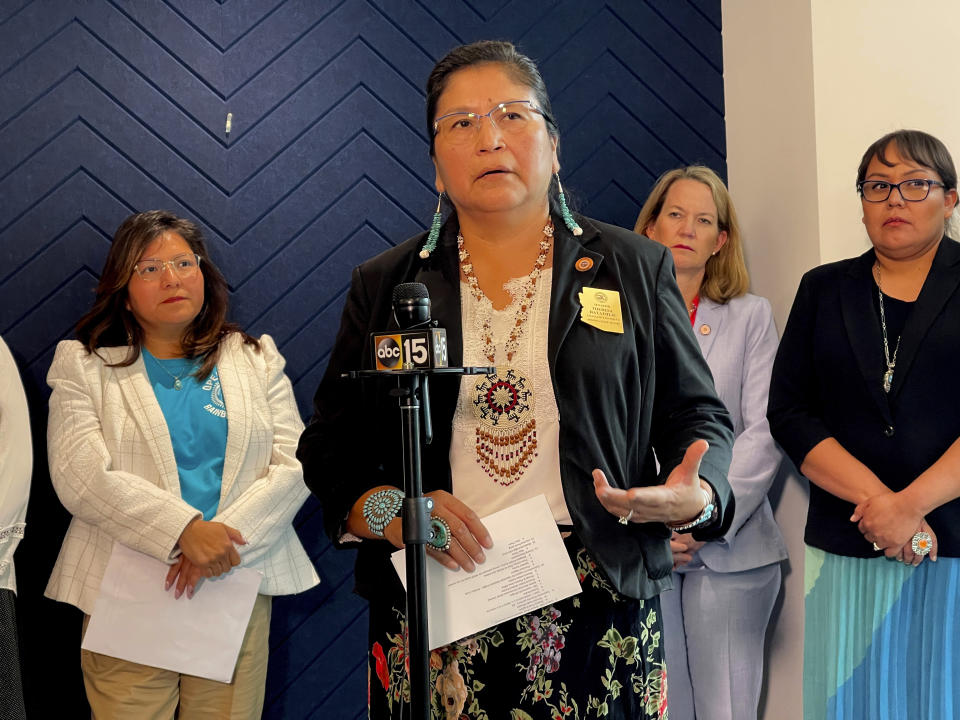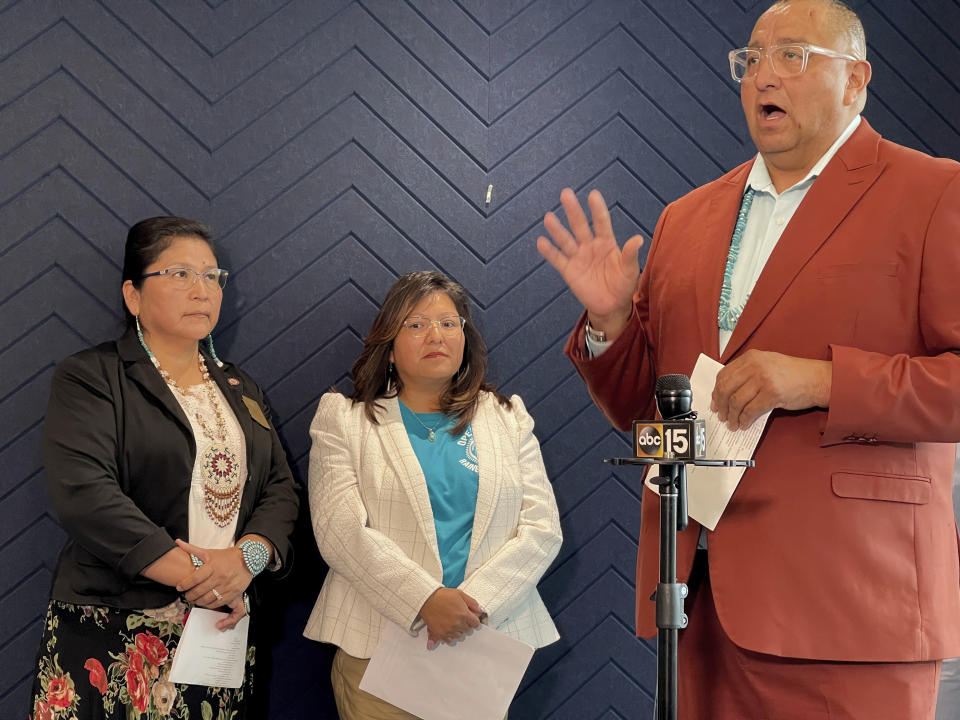Navajo leaders seek tribal members caught up in sober-living Medicare scam in Arizona
PHOENIX (AP) — Navajo leaders on Friday unveiled an operation to find and get needed services to hundreds of tribal members they predict will soon be on the streets of metro Phoenix amid a state crackdown on Medicaid fraud that affected as many as 7,000 Native Americans recruited to illegitimate sober living homes in recent years.
Called Rainbow Bridge, the operation is in response to actions announced this week by the state of Arizona against more than 100 unlicensed and fraudulent sober living homes in the Phoenix metropolitan area.
Navajo leaders said they will staff a Phoenix operations center to help Navajo tribal members displaced when sober living homes caught up in the fraud investigation are indicted or their Medicaid funding is cut off.
“I view this as a humanitarian and a human rights crisis,” said Navajo Attorney General Ethel Branch, adding that the goal is to get victimized people into treatment programs and ultimately back with their families.
Branch said she believes the operators of the homes should also be investigated for human trafficking, but that has not been part of the probe so far.
Navajo officials say that in some cases, people were picked up in white vans and driven to the Phoenix area from places as far away as the sprawling Navajo Nation that stretches across northern Arizona and parts of New Mexico and Utah. In some cases, the people allegedly didn't even know the location of the homes where they were staying.
Harlan Cleveland, of the Navajo Division of Public Safety and special operations coordinator for the project, said that in the previous 24 hours team members found more than two dozen Navajo tribal members wandering the streets of Phoenix after being displaced by the homes.
Along with teams that are actively looking for former residents of the illegitimate sober living homes, the Operation Rainbow Bridge toolbox includes a Facebook page and a TikTok account now under construction. There's also a “211” hotline that the tribe is advertising among its members that allows those affected and their families to get more help.
The Arizona Health Care Cost Containment System, which oversees the state's Medicaid programs, so far has cut off funding to more than 100 homes targeted by the probe and is prepared to stop the flow of cash to many more in the coming months, state officials say.
Through the scheme, the state’s Medicaid program had been paying out money for addiction and other mental health services that state officials say the homes billed for but never delivered.
State officials believe the fake homes have defrauded Arizona out of hundreds of millions of its share of federal Medicaid dollars. Arizona Attorney General Kris Mayes said authorities have seized $75 million so far and have issued 45 indictments in the investigation that has also involved the FBI and the U.S. Attorney General's Office.
Mayes said at the Operation Rainbow Bridge announcement that investigators believe the scam was initially launched several years ago by a Nevada-based criminal syndicate, spawning numerous franchises before the idea spread to other scammers. She said hundreds of fake sober living homes are believed to be currently operating in the Phoenix area, as well as in northern Arizona communities including Prescott.
State officials said this week that a forensic audit by a third party is looking at claims filed by mental health and addiction service providers since 2019. New processes are being put in place for handling unusual claims.
Navajo authorities said tribal members seeking help for addiction have been recruited to the homes with false hopes of recovery from as far away as the northern community of Tuba City, Arizona, and even New Mexico.

 Yahoo News
Yahoo News 

